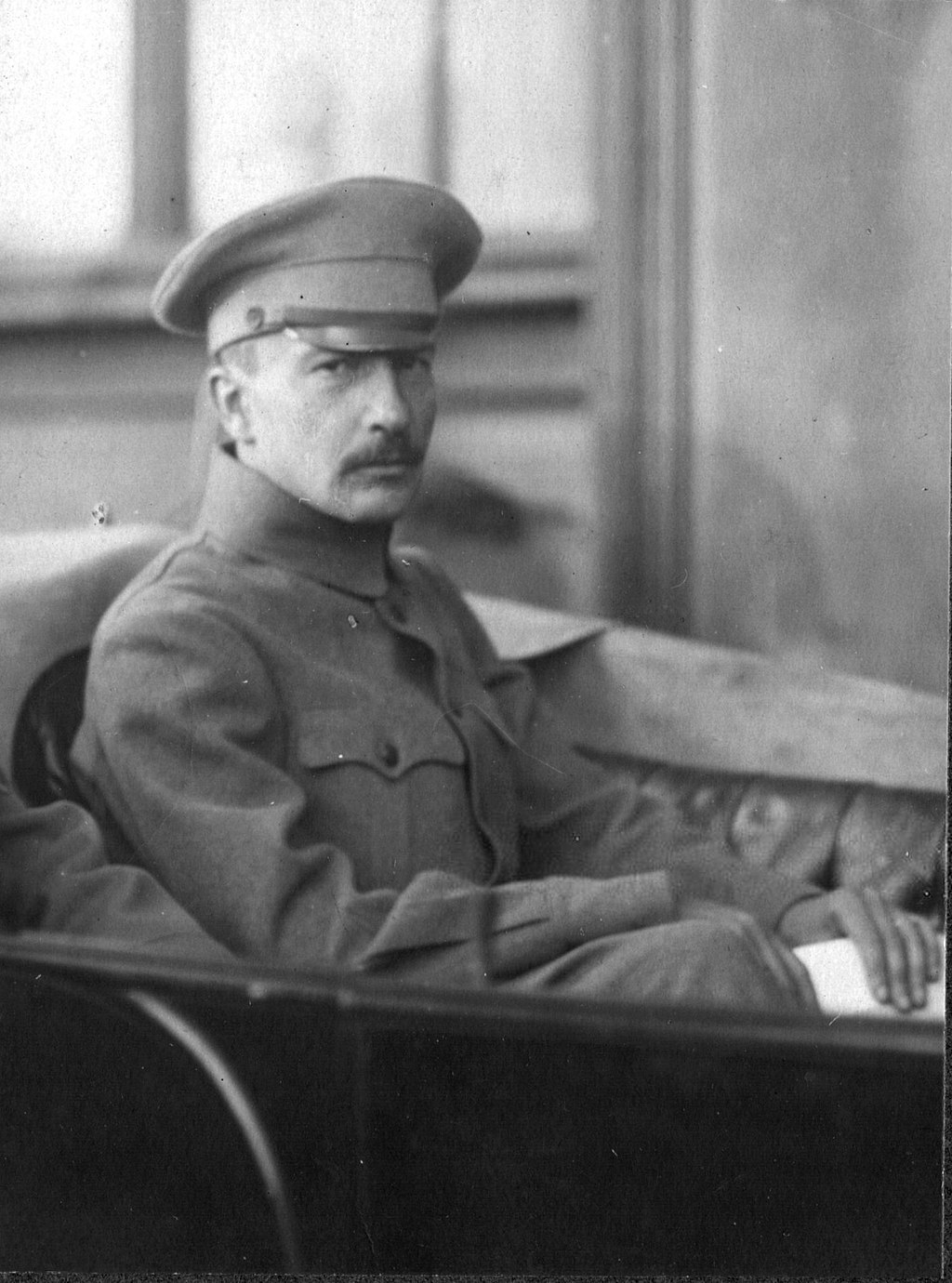Boris Savinkov was born in Kharkov in the family of a justice of the peace and a writer. Boris's brothers were involved in revolutionary activities. He studied at the gymnasium in Warsaw. Then Savinkov studied at St. Petersburg University, but was expelled for participating in the riots. In 1898 he went abroad, hiding from the authorities. A year later, Savinkov returned to St. Petersburg, where he was again arrested. In prison, Savinkov launched a literary activity. In 1899-1990, he became a Plekhanov-leaning Social Democrat and worked in the Socialist and Rabochee Znamya groups. For this, Savinkov was again arrested for the third time in 1901. At the beginning of 1902 he was exiled by administrative order to Vologda. He then fled from exile to Geneva. In the spring of 1903, after a meeting with Breshko-Breshkovskaya, Savinkov joined the Socialist-Revolutionary Party. In May of the same year, he took part in terrorist activities. From 1903 to 1911, he participated in the preparation of assassination attempts on the Minister of the Interior Plehve, Grand Duke Sergei Alexandrovich, as well as on Emperor Nicholas II . In 1911, Savinkov left Russia, settled in Italy and then in France. During the revolution in February 1917, he returned to St. Petersburg and became a commissar at the headquarters of the supreme commander in chief, and after that he became a comrade of the Minister of War of the Provisional Government. In September 1917, Savinkov was expelled from the Socialist-Revolutionary Party on charges of participating in the Kornilov uprising .¹
In 1918, Savinkov stood at the helm of the Union for the Defense of the Homeland and Freedom, and later - appointed Admiral Kolchak's representative in Paris. In July 1918, he raised an uprising in Yaroslavl, Murom and Rybinsk. During the Soviet-Polish war, Savinkov ended up in Warsaw. Was in a fairly close relationship with Marshal Pilsudski. He also led the Russian Political Committee in Warsaw, after that, with the support of the Polish General Staff, he began to form armed detachments that were sent to Soviet territory. He was a volunteer of a cavalry regiment, which participated in the hostilities on the territory of Belarus. In Warsaw, he revived the Union for the Defense of the Motherland, which included Merezhkovsky, Gippius and Philosophers. At the congress of the organization in June 1921, it was decided to break with the white movement.²
After the signing of the Riga Peace Treaty on March 18, 1921, when Poland pledged to destroy all anti-Soviet organizations on its territory, Savinkov left for Prague and then for Paris. In 1923-1924, the OGPU made an attempt to arrest Savinkov as part of Operation Syndicate-2. A fictitious organization "Liberal Democrats" was created, which arranged an illegal crossing of the Soviet-Polish border by Boris Savinkov. In August 1924, he was arrested immediately after crossing the state border. Was sentenced to 10 years in prison. May 7, 1925, according to the OGPU, Boris Savinkov committed suicide in the office of the Cheka in the Lubyanka.³
In 1918, Savinkov stood at the helm of the Union for the Defense of the Homeland and Freedom, and later - appointed Admiral Kolchak's representative in Paris. In July 1918, he raised an uprising in Yaroslavl, Murom and Rybinsk. During the Soviet-Polish war, Savinkov ended up in Warsaw. Was in a fairly close relationship with Marshal Pilsudski. He also led the Russian Political Committee in Warsaw, after that, with the support of the Polish General Staff, he began to form armed detachments that were sent to Soviet territory. He was a volunteer of a cavalry regiment, which participated in the hostilities on the territory of Belarus. In Warsaw, he revived the Union for the Defense of the Motherland, which included Merezhkovsky, Gippius and Philosophers. At the congress of the organization in June 1921, it was decided to break with the white movement.²
After the signing of the Riga Peace Treaty on March 18, 1921, when Poland pledged to destroy all anti-Soviet organizations on its territory, Savinkov left for Prague and then for Paris. In 1923-1924, the OGPU made an attempt to arrest Savinkov as part of Operation Syndicate-2. A fictitious organization "Liberal Democrats" was created, which arranged an illegal crossing of the Soviet-Polish border by Boris Savinkov. In August 1924, he was arrested immediately after crossing the state border. Was sentenced to 10 years in prison. May 7, 1925, according to the OGPU, Boris Savinkov committed suicide in the office of the Cheka in the Lubyanka.³
Boris Viktorovich Savinkov (1879–1925)


Content Oriented Web
Make great presentations, longreads, and landing pages, as well as photo stories, blogs, lookbooks, and all other kinds of content oriented projects.
[1] Ioffe, Genrikh. ‘Revolyutsioner: Zhizn’ i Smert’ Borisa Savinkova’. Novyy Istoricheskiy Vestnik, no. 20 (2009): 87–98.
[2] Tsurganov, Yuriy. ‘B. V. Savinkov (1879-1925)’. Sotsial’nyye i Gumanitarnyye Nauki. Otechestvennaya i Zarubezhnaya Literatura., Ser. 7, Literaturovedeniye: Referativnyy zhurnal., no. 2 (1995): 81–87. https://cyberleninka.ru/article/n/95-02-010-b-v-savinkov-1879-1925.
[3] Ioffe, Genrikh. ‘Revolyutsioner: Zhizn’ i Smert’ Borisa Savinkova’. Novyy Istoricheskiy Vestnik, no. 20 (2009): 87–98.
[2] Tsurganov, Yuriy. ‘B. V. Savinkov (1879-1925)’. Sotsial’nyye i Gumanitarnyye Nauki. Otechestvennaya i Zarubezhnaya Literatura., Ser. 7, Literaturovedeniye: Referativnyy zhurnal., no. 2 (1995): 81–87. https://cyberleninka.ru/article/n/95-02-010-b-v-savinkov-1879-1925.
[3] Ioffe, Genrikh. ‘Revolyutsioner: Zhizn’ i Smert’ Borisa Savinkova’. Novyy Istoricheskiy Vestnik, no. 20 (2009): 87–98.